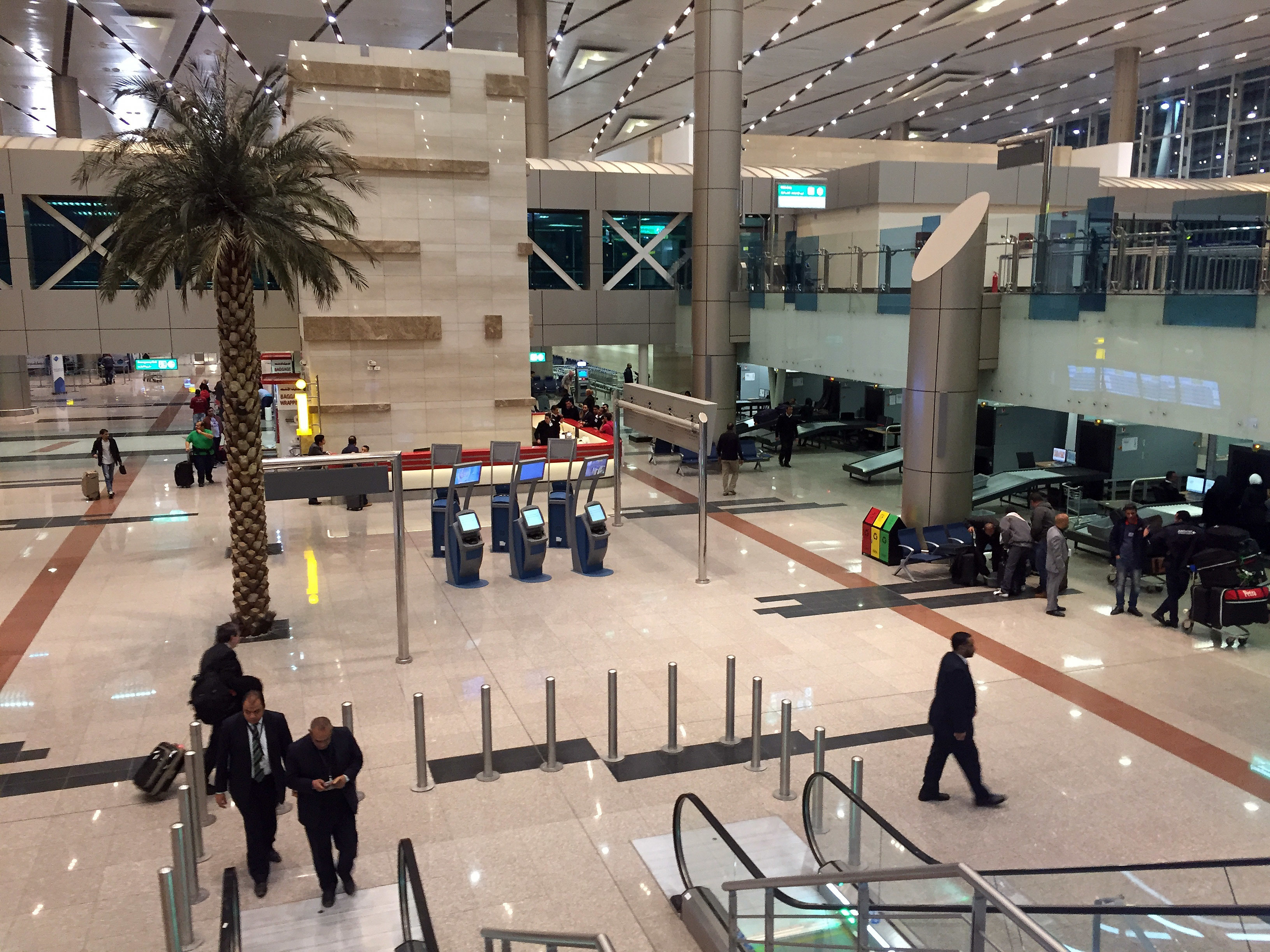New York (AP) – As far as the indignities of modern air travel go, the latest ban on laptops and tablets on some international flights falls somewhere between taking off shoes at the security checkpoint and testing baby food and milk for bomb residue.
It’s yet another impediment in the name of security for already weary travelers, especially those from or passing through the 10 mostly Middle Eastern and North African countries covered by new U.S. and British policies. While not quite as disruptive as an outright ban on smartphones – much less a travel ban based on nationality – the restrictions loom large for some.

“Why are only Middle Eastern airlines subject to this ban?” asked Kelsey Norman, a doctoral student who plans to fly home Friday to Los Angeles from Beirut – and expects to have to check her laptop, a Kindle tablet and her DSLR camera. “Overall this policy is inconvenient, discriminatory, and continues to hurt America’s rapidly deteriorating reputation globally.”
Ban logic
New restrictions from the U.S. Department of Homeland Security prohibit the transportation in carry-on baggage of laptop computers, tablets, Kindles, some gaming devices, cameras and other electronics larger than a smartphone. The U.S. government cited unspecified threats as the reason. The U.K. government instituted a similar ban; neither government’s restrictions affect U.S. airlines.
People can still bring with them to their seat items like smartphones, duffel bags, coats, small bottles of hand lotion, snacks, earplugs and other small items.
Lost productivity
Some, particularly business travelers, see the potential for theft, damage or compromised data if they are forced to check laptops. The anxiety is real enough that there were attempts to reroute flights to other airports immediately after the ban was announced.
Banu Akdenizli, a native of Turkey, said that being forced to fly 17 hours without her laptop will cost her precious time to work and to prepare for a conference.
“It might seem trivial to a lot of people, but what you get from these parts of the world are usually business travelers,” said Akdenizli, an associate professor of communications at the Doha, Qatar, campus of Northwestern University.
For those who must, there are ways to do a limited amount of work without laptops, tablets or other electronics.
Awkward workarounds
It is possible to transfer import documents to Google Docs and do some work on a smartphone. Features can be limited for some apps; Microsoft’s Office app, for instance, allows users to open only one document at a time.
These apps are good enough for simple proofreading and minor editing, but will leave users wanting when more complex tasks are required. The text will also be small on smartphones, though there is a way to temporarily reformat it to accommodate smaller displays.
One simple task that can be done on a smartphone is communicating via email or cleaning up inboxes. In-flight Wi-Fi is required to send or receive emails.
If travelers need downtime, there is always Netflix or Amazon. Users can download content to a smartphone before leaving so that it’s easily accessible.
At least it’s not phones
Laptops and other gadgets play only a supporting role to the smartphone for many travelers. Yet even in cases where there are restrictions on smartphones, at least in the most recent and notable example, the reasons were clear.
Last fall, Samsung asked users of its fire-prone Galaxy Note 7 to “power down and stop using the device” on planes. (The phone was later banned, and then recalled.)
One big difference with that ban and today’s regionally based restrictions is that with the Galaxy, there were widely circulated videos of Note 7s bursting into flames. There was no doubt that this would be a bad thing at 30,000 feet.
The potential danger cited by the U.S. and the U.K. is more ambiguous.
Yet even for some travelers who do not mind stowing away laptops to abide by the new rules, there is some apprehension.
Nick Lieber, a dual U.S.-Israeli citizen living in Jerusalem, plans an April trip to Chicago that will take him through Amman, Jordan, and therefore subject him to the ban. He doesn’t anticipate having to do work on his laptop during the flight.
But he worries about laptop lithium-ion batteries – which have been blamed for past aircraft fires – stored in the plane’s cargo hold. “I’m a nervous flyer already,” Lieber said.
Associated Press writers Russ Bynum in Savannah, Georgia, and Anick Jesdanun in New York contributed to this story.




